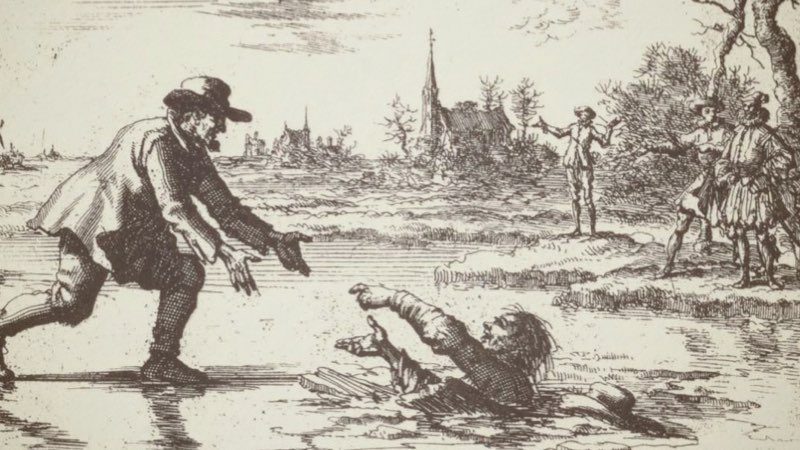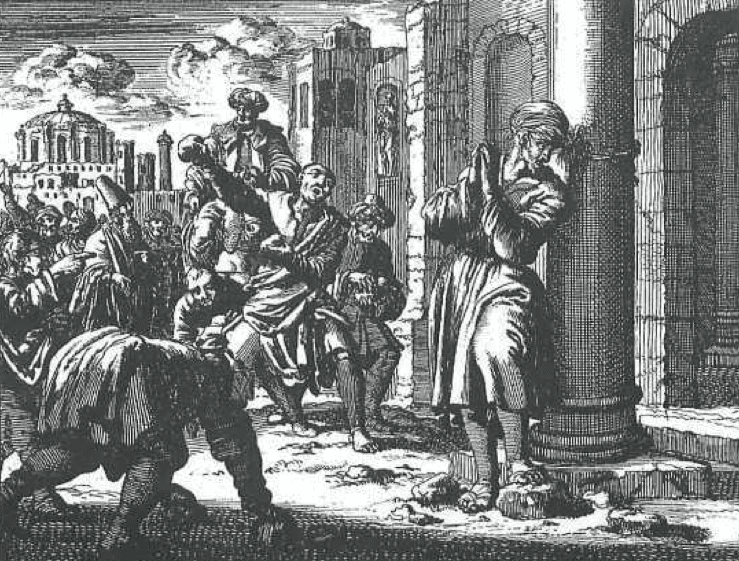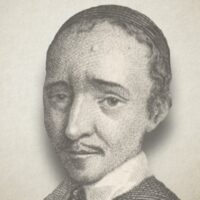
24. The Apostle Philip
The Apostle Philip stoned in Hierapolis, Phrygia, A.D. 54
The Holy Apostle Philip, Bound with His Head to a Pillar, and Stoned, at Hierapolis, in Phrygia, A.D. 54
Philip, a native of Bethsaida, in Galilee, had a wife and daughters of very honorable life. John 1:44; 12:21; Euseb. Hist. Eccles. lib. 3. cap. 30; 31.
He was found of Christ, and called as His disciple to follow Him; which he did so faithfully, that when he found Nathanael, he brought him to Christ, declaring to him, that he had found Him of whom Moses and the prophets had written, namely, Jesus of Nazareth, the true Messiah. John 1:45.
From that time on, Philip constantly followed Christ, listening to His admonitions, and beholding the miracles He performed to the service of the word of God; so that Christ ordained him an apostle, and sent him out to preach the Gospel, in the first place to the scattered sheep of the house of Israel; which he also like his fellow apostles did. Matt. 10:3; Luke 6:13-15.
The Lord esteemed him as one of His greatest friends; for at the glorious miracle of the feeding of five thousand, Christ, in order to prove him, counseled with him, saying, “Whence shall we buy bread, that these may eat?” (John 6:5).
He was also kindly instructed by the Lord, when he asked to see the Father; for Christ said to him, Philip, he that hath seen me hath seen the Father, etc. John 14:8,9.
Once when certain Greeks wished to see Jesus, and desired him to procure them access to the Lord, he came with Andrew and told it to the Lord, who answered, “The hour is come, that the Son of man should be glorified” (John 12:20-23).
This pious and godly apostle remained with the Lord, even to His suffering; and, after their dispersion, when Christ had arisen, he abode with his brethren, until they, according to the promise of Christ, received the Holy Ghost, after His ascension. Luke 24:32, 33; Acts 2:4.
After the distribution of the countries, he taught several years in Scythia, where he planted many churches; and since Syria and the upper part of Asia fell to his particular share, he laid the foundations of faith in many of these cities. Pet. de Nat. lib. 4. cap. 107. Nic. lib. 2. cap. 39.
Finally he came to Phrygia, and wrought several signs at Hierapolis. There the Ebionites, who not only denied the divinity of Christ, but also worshiped idols, continued obstinately in their blasphemous doctrines and idolatry, and did not listen to this pious apostle of Christ, but apprehended him, and, having made his head fast to a pillar, stoned him; whereupon death ensued, and he thus fell asleep in the Lord. His body was buried in the aforementioned city Hierapolis. [Konst-toonecl, van vecrtigh heerlijke afbecldingen Christi, ende sijner Apostclcn, etc. In the life of Philip. Bybelsch Naembceck van P. J. Twisk, letter P. on the name Philippus, fol. 762. col. 2. Also, Introduction to the Martyrs’ Mirror of the Baptists, printed in the year 1631, fol. 35. col. 1.]
Thieleman J. Van Braght (1625-1664) was an Anabaptist who is best known for writing a history of the Christian witness throughout the centuries entitled “The Bloody Theater or Martyrs Mirror of the Defenseless Christians who baptized only upon confession of faith, and who suffered and died for the testimony of Jesus, their Saviour, from the time of Christ to the year A.D. 1660” (1660).
Thieleman J. Van Braght, Martyrs Mirror




